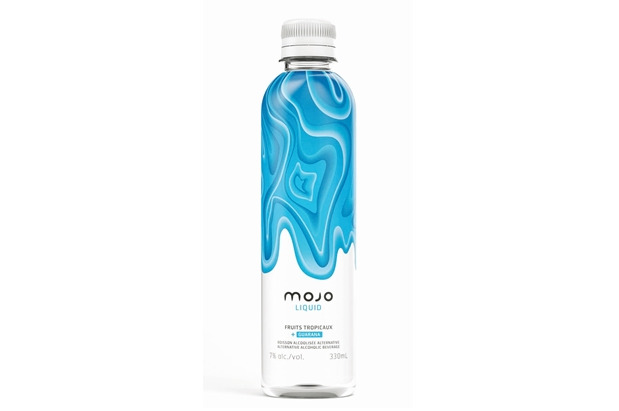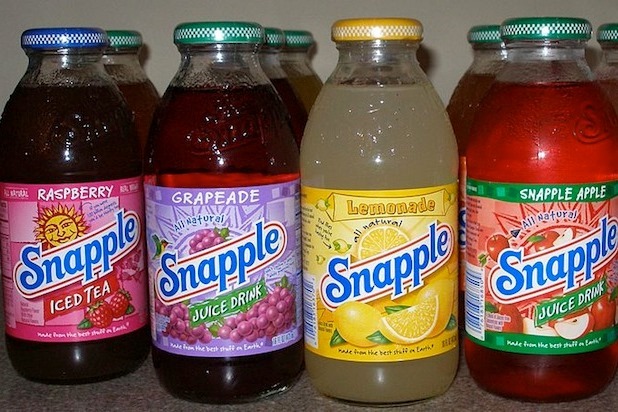11 Misleading Beverage Labels Slideshow
Vitaminwater — Just Vitamins and Water?
What's in a name? In the case of popular drink Vitaminwater, more than you might assume, actually. Certainly more than just vitamins and water, at least. It seems that a 20-ounce bottle contains more than 30 grams of sugar and 120 calories. Not exactly what you would expect from a healthy-sounding drink with phrases like "vitamin + water = what's in your hand" on the label. The beverage came under fire in 2009 when food-health advocacy group, the Center for Science in the Public Interest (CSPI), filed a class-action suit against Coca-Cola, the brand's owner, claiming that it violated consumer-protection laws.
100 Percent Orange Juice
The validity of the claim "100 percent orange juice" came under attack after a few reports revealed some interesting facts about the process of how it's made. Apparently, during processing, commercial orange juice is "deaerated" so that it won't spoil when it's stored. Trouble is, the process of removing the oxygen also removes a lot of the characteristic natural orange juice flavor. So how does it end up tasting like orange juice in the end? Credit that to brand-trademarked flavor packs.
"All Natural" Arizona Teas
All of those "natural" claims on the Arizona tea cans really put the company in hot water, when a class-action lawsuit was filed against the beverage-maker for its "natural" labels — and its use of high-fructose corn syrup and citric acid. But there's still no real resolution as to whether the Arizona beverages are in fact natural. The three-year-old class-action lawsuit against Arizona Beverages was recently thrown out; as one attorney explained to Food Navigator, "The judge basically said that just because something is processed, doesn't mean it isn't 'natural." Of course, scores of other experts would argue that high-fructose corn syrup is in fact artificial, despite its chemical similarities to table sugar. So those "natural" claims on the back of the giant Arizona teas may stick around a while longer — but that doesn't mean you should trust them.
CytoSport Muscle Milk: 'Fat-Laden Junk Food'
If you actually thought that Muscle Milk would buff you up, and were sorely disappointed, you may be able to get some money back. A recent class-action lawsuit against Muscle Milk and its line of nutrition supplements was settled for $5.3 million, meaning that anyone who bought a Muscle Milk product between 2007 and the end of 2012 may be able to get a refund. The lawsuit debunked Muscle Milk's claims that the drinks provided "Healthy, Sustained Energy" and "healthy fats," — and the lawsuit found that the drinks contained trace amounts of metals, including lead, cadmium, and/or arsenic. (What, you don't like drinking lead?) The result of the lawsuit (in which the California federal court called the Muscle Milk drinks "a fat-laden junk food") now means that CytoSport must remove the offending labels and pay up. Lexology also notes that CytoSport will donate $85,000 to the American Heart Association to "further the class' interest in cardiovascular health." Because cardiovascular health and sugary protein drinks definitely go hand in hand.
Mojo Malt Liquor, Just Like Bottled Water
Don't be fooled by the pretty plastic bottle: the newest malt liquor to hit shelves, called Mojo, has liquor boards across the country concerned because its bottle design looks remarkably like a water bottle. The drink was sold in nine states in the Northeast, but New Hampshire has moved to ban it from sale in the state because of its resemblance to bottled water. Said the New Hampshire Liquor Commission in a statement, "These products are clear liquid, resembling water and are packaged in containers that resemble specialty water products." And the maker behind the Mojo drink, Irokos Group, wants to sell a New Hampshire version of the drink that's only 5.9 percent ABV (instead of its normal 7 percent), so that it technically qualifies as a malt beverage instead of a malt liquor — so you can see it in a mom-and-pop liquor store next to the Mike's Hard. One of the leading execs at Irokos Group said in response to the New Hampshire Union Leader that the fury at Mojo has been overblown. "I am frustrated that people are trying to give it a bad image for something so simple," he said. "This product is the same as Smirnoff Ice." So make sure you know what you're picking up at the liquor store.
Inaccurate Labeling on Energy Drinks
The makers of energy drinks, especially Monster Energy Drinks and 5-Hour Energy Drinks, have been under fire for quite a few months now. Back in July, the New York State attorney general issued subpoenas for PepsiCo (the manufacturer behind Monster Beverages and Living Essentials) to further investigate the company's marketing and advertising claims, including inaccurate labeling. The FDA followed suit with its own investigation in November.
The results should come as no surprise; one study found that the amount of caffeine in an energy drink is often very different from what the label says. One Consumer Reports study found that of 27 brands tested, 11 didn't specify the amount of caffeine in the drink; the reason may be that energy drinks may not want to publicize their proprietary blends, which could include ingredients like amino acids, carbohydrates, guarana, and one particularly troublesome ingredient: dimethylamylamine (DMAA). In the latest energy drink news, the FDA has come out with a staunch warning against energy drinks and supplements with DMAA. Reports Boston.com, "The FDA said it had received 60 reports of serious conditions such as heart attacks, seizures, psychiatric problems, and deaths that were associated with DMAA use." Lovely. The manufacturer of one energy supplement, USPlabs, commented that DMAA is a natural dietary ingredient, but others have said that the plant-based argument is a guise for new pharmaceuticals. The take-away: you can't really trust what's in your energy drink.
"All Natural" Snapple
"All natural" — sounds healthy, right? It's easy to understand why you might make that assumption. However, as it turns out, the FDA has no formal rules about what constitutes something as being "all natural." The unfortunate loophole is what allowed products like Snapple to label their teas and juices as "all natural" despite having been made with citric acid and high-fructose corn syrup (although in 2009 the company started using sugar in its iced teas instead). The drink even faced a consumer lawsuit over the issue but the case was rejected soon after. Still, the takeaway remains the same: Don't accept anything labeled as "all natural" at face value.
How Wonderful Is POM Wonderful?
BBoth the Federal Trade Commission and the FDA took issue with POM Wonderful's allegedly misleading claims, filing a complaint and sending warnings. Specifically, the FTC attacked the drink's claims that it has "Super Health Powers" and that it "Promotes Healthy Blood Vessels." The FDA's warning stemmed from the fact that the drink was promoted for condition that would make the product have to be considered a drug.
Commercial Coconut Water — A Good Source of Electrolytes?
Coconut water — the trendy health drink du jour — suffered a bit of a blow after product testing company ConsumerLab.com released results on three popular commercial brands of the drink. They tested O.N.E. Coconut Water, VitaCoco, and Zico Natural Pure Premium Coconut Water, finding that only the later offered the same amount of electrolytes as a traditional sports drink. The other two failed to deliver the advertised amounts of electrolytes — troubling since the drink is essentially marketed as a natural sports drink alternative.
Evaporated Cane Juice in Trader Joe’s Organic Soy Chocolate Milk
Sure, you see the label and think, "Organic? Soy? Sure, that must be good for kids." But according to a new class-action lawsuit filed last month against the chain, the Trader Joe's milk may be filled with more sugar than you think. The soy milk was just one of the many products named in the suit for one particular ingredient — evaporated cane juice — which the plaintiffs say is just a fancy word for sugar. As The Huffington Post notes, "The U.S. Food and Drug Administration has banned the term 'evaporated cane juice' as a synonym for sugar on packaged foods, but the use of the term has become increasingly common over the past few years." The suit also alleges that the label on the organic soy chocolate milk is misleading because it suggests that it acts as a substitute for dairy milk, despite the fact that calcium from soy milk is harder to absorb than calcium from dairy milk.









